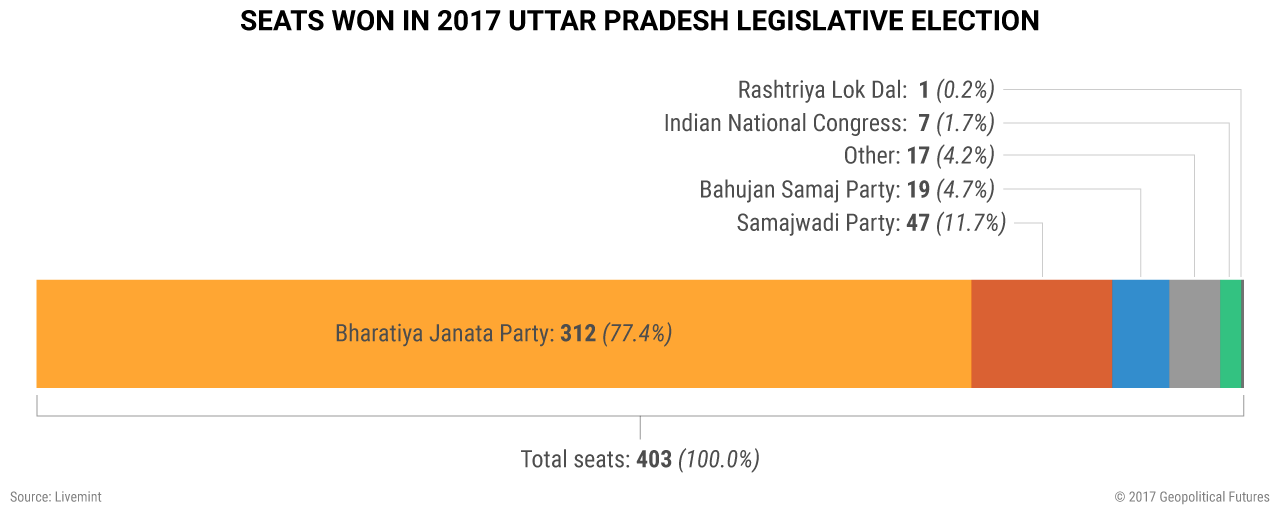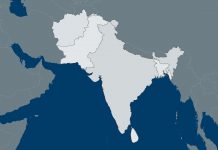In the past, Uttar Pradesh was a bastion for non-BJP opposition parties like the Indian National Congress. Regional parties were also popular. But regional parties now are giving way to national ones like the BJP in state elections. In 2014, when Modi was voted into power, the BJP won 73 of Uttar Pradesh’s 80 seats in the national parliament’s lower house.
State legislative elections in India are important for two reasons. The first is the degree of influence state institutions have on the federal government. Each state’s legislative assembly indirectly votes for its representative in parliament’s upper house.
The second reason is India’s administrative power structure. Given the vast size and diversity of India’s population, individual states or union territories were given a lot of governing power.
Each state has a chief minister who occupies the main office that holds power at the state level. This office goes to the leader of the majority group in the state’s legislative assembly. In other words, the party that runs the state legislature also selects from its ranks the most powerful state-level political officer. Read more about the importance of these elections in our recent Reality Check, “State Elections and Power in India.”






 Special Collection – The Middle East
Special Collection – The Middle East